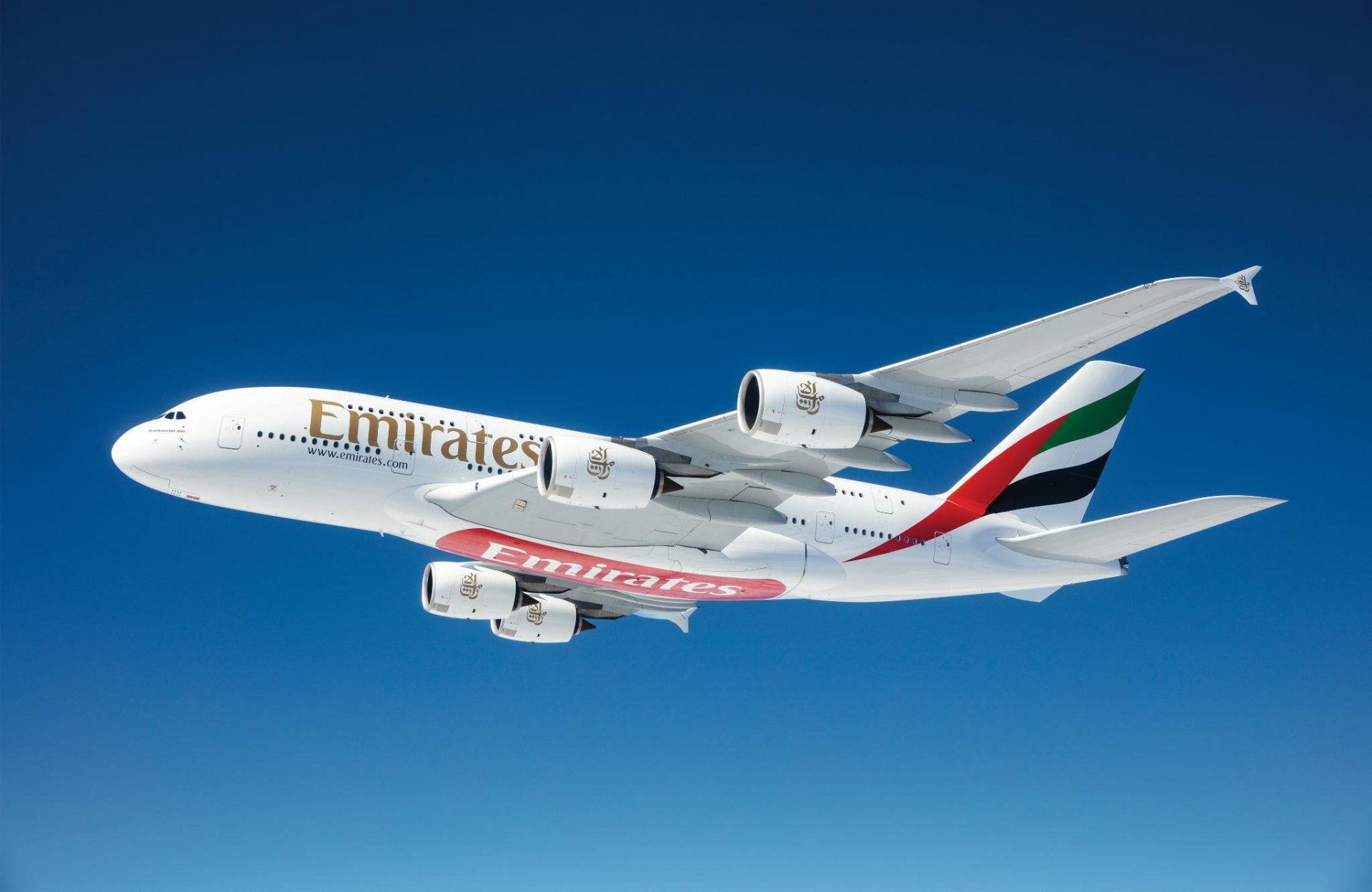
Emirates Group's Historic Profit and Revenue in 2022-2023
Emirates Group emerges triumphant with record-breaking profit and revenue in 2022-2023, signaling a remarkable post-pandemic recovery for the Dubai-based airline.
Dubai-based Emirates Group has announced impressive financial results for the fiscal year ending in April 2023, showcasing record-breaking profit and revenue figures. With the majority of pandemic-induced travel restrictions lifted, the group reported an annual profit of 10.9 billion United Arab Emirates dirhams ($3 billion), while Emirates airline experienced an 81% increase in revenue, reaching 119.8 billion dirhams. Moreover, passenger numbers soared to 43.6 million, representing a remarkable 123% surge compared to the previous year.
The aviation industry faced immense challenges due to the Covid-19 pandemic, causing Emirates to incur losses of $5.5 billion in May 2021 and an additional $1.1 billion in May 2022, exacerbated by soaring fuel prices following Russia's full-scale invasion of Ukraine. However, the company's strong leadership and Dubai's progressive policies were credited for its remarkable performance in the latest fiscal year. Chairman of the group, Sheikh Ahmed bin Saeed Al Maktoum, expressed optimism for the upcoming year, stating, "We go into 2023-24 with a strong positive outlook and expect the Group to remain profitable."
Emirates President Tim Clark acknowledged the positive trend in an interview with CNBC, highlighting the resilient demand for travel. He mentioned, "A lot of people are flying today, and plenty more want to fly." This increased demand has enabled Emirates to make strategic investments, including a substantial injection of 7.2 billion dirhams into new aircraft, facilities, equipment, companies, and technology during the 2022 fiscal year. The airline has also committed to acquiring five new Boeing 777 aircraft, establishing the world's largest vertical farm in Dubai, and constructing a new pilot training center.
The positive financial performance allowed Emirates to repay 3 billion dirhams of debt accumulated during the Covid-19 crisis. Additionally, Emirates' owner, Investment Corporation of Dubai, received a dividend payout of 4.5 billion dirhams.
Emirates is not the only airline benefiting from the post-pandemic resurgence in passenger numbers. easyJet has raised its profit expectations, while Alaska Airlines and Southwest Airlines have also reported robust demand.
Emirates' outstanding achievements coincide with the overall increase in air travel within the United Arab Emirates (UAE). The General Civil Aviation Authority revealed a 56.3% surge in passenger traffic at UAE airports during the first quarter of 2023.
To boost tourism, Emirates has signed agreements with several countries, including the Bahamas, Morocco, Zimbabwe, and Indonesia. These initiatives aim to support visitor arrivals and enhance the travel experience.
The Emirates Group's remarkable financial success for the fiscal year 2022-2023 signals a remarkable turnaround from the losses incurred during the pandemic. Revenues soared by 81% to 107.4 billion dirhams ($29.3 billion) as Emirates airline restored its global network and reinstated numerous passenger flights. Chairman and Chief Executive Sheikh Ahmed bin Saeed Al Maktoum expressed his pride in the company's achievements, stating, "We're proud of our 2022-23 performance, which is not only a full recovery but also a record result."
The group's cash balance reached a historic high of 42.5 billion dirhams ($11.6 billion), a 65% increase compared to the previous year. The remarkable financial outcome was attributed to strong customer demand across all business divisions and markets.
The Emirates Group's success is instrumental in supporting the UAE's economy, as it contributes to over 770,000 jobs and generates an estimated GDP contribution of over $47 billion (172.5 billion dirhams). With its growth plans aligned
with the Dubai Economic Agenda D33, the Emirates Group anticipates significantly increasing its contribution to the UAE's GDP in the coming decade. This will be achieved through direct and indirect employment, supply chain spending, tourism expenditure, and the trade and commerce benefits derived from the movement of cargo.
Emirates' success in the fiscal year 2022-2023 can be attributed to various factors. The airline carried an impressive 43.6 million passengers, marking a substantial 123% increase compared to the previous year. This surge in passenger numbers was accompanied by a significant growth in seat capacity, which rose by 78%. As a result, the passenger seat factor reached 79.5%, a substantial improvement from the 58.6% recorded in the previous year. The increase in passenger yield to 37.5 fils per Revenue Passenger Kilometer (RPKM) further contributed to the airline's profitability. This positive performance was driven by factors such as changes in cabin and route mix, fare adjustments, and currency fluctuations.
Emirates also made strategic expansions during the fiscal year. The airline launched services to Tel Aviv and reinstated operations to six destinations. It expanded its network to 62 cities worldwide, with a total of 150 destinations by the end of March. Moreover, Emirates deployed its flagship A380 aircraft to an impressive 43 destinations, further enhancing its global reach and providing a superior travel experience to its customers.
In terms of investments, the Emirates Group allocated a substantial sum of 7.2 billion dirhams ($2 billion) towards new aircraft, facilities, and other essential needs. This included a significant investment in the aircraft cabin retrofit program, as well as an order for five new 777 freighters. Notably, the group also embarked on the construction of a new pilot training center and collaborated with CropOne to establish Bustanica, the world's largest vertical farm in Dubai. These initiatives demonstrate the group's commitment to innovation, sustainability, and enhancing its overall operations.
The exceptional financial performance of the Emirates Group has not only resulted in record-breaking profits but also allowed the company to prioritize debt repayment. The repayment of 3 billion dirhams of debt acquired during the Covid-19 crisis underscores the group's financial resilience and prudent financial management.
The positive outlook for the Emirates Group is underpinned by the ongoing recovery in the global aviation industry. However, potential challenges such as inflation, high fuel prices, and political and economic uncertainty necessitate a cautious approach. The group remains committed to closely monitoring these factors to ensure sustained profitability and success.
In conclusion, the Emirates Group's remarkable financial results for the fiscal year 2022-2023 underscore its ability to navigate through the challenging landscape of the Covid-19 pandemic. The record-breaking profits, substantial revenue growth, and increased passenger numbers are a testament to the group's resilience, strategic investments, and unwavering commitment to delivering exceptional travel experiences. As the aviation industry continues to recover, the Emirates Group is poised to play a pivotal role in supporting the UAE's economy, creating jobs, and driving growth in various sectors. With its strong leadership, forward-thinking strategies, and customer-centric approach, the Emirates Group is well-positioned for continued success in the years to come.
Read More
-
SCHD ETF Holds Ground With 3.6% Yield as Dividend Investors Eye Stability Over Growth
15.10.2025 · TradingNEWS ArchiveStocks
-
Ripple XRP (XRP-USD) Steadies at $2.43- SEC Shutdown Freezes ETF Decisions, Inflows Hit $61.6M
15.10.2025 · TradingNEWS ArchiveCrypto
-
NG=F Falls to $2.99 as Record Supply Outpaces Demand Despite 16.9 Bcf/d LNG Exports
15.10.2025 · TradingNEWS ArchiveCommodities
-
USD/JPY Price Forecast - Yen Weakens to 151.30 Amid Dollar Selloff
15.10.2025 · TradingNEWS ArchiveForex


















